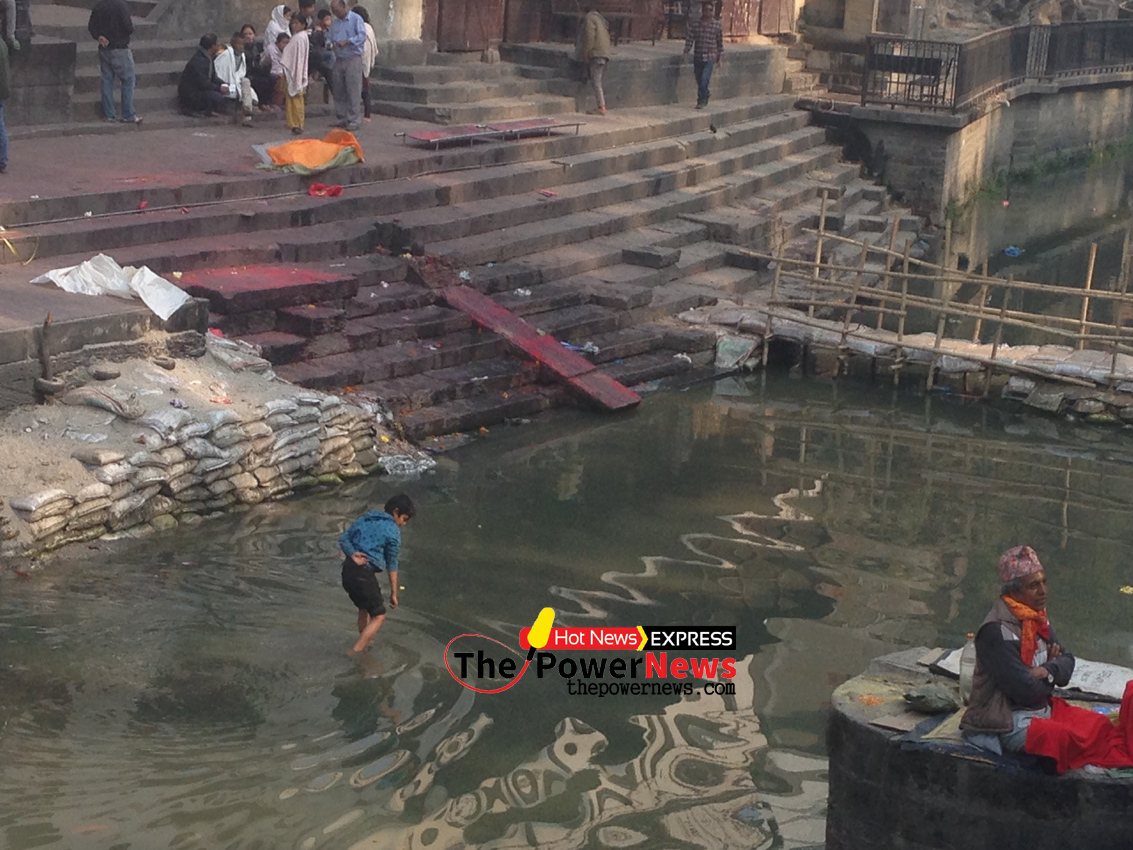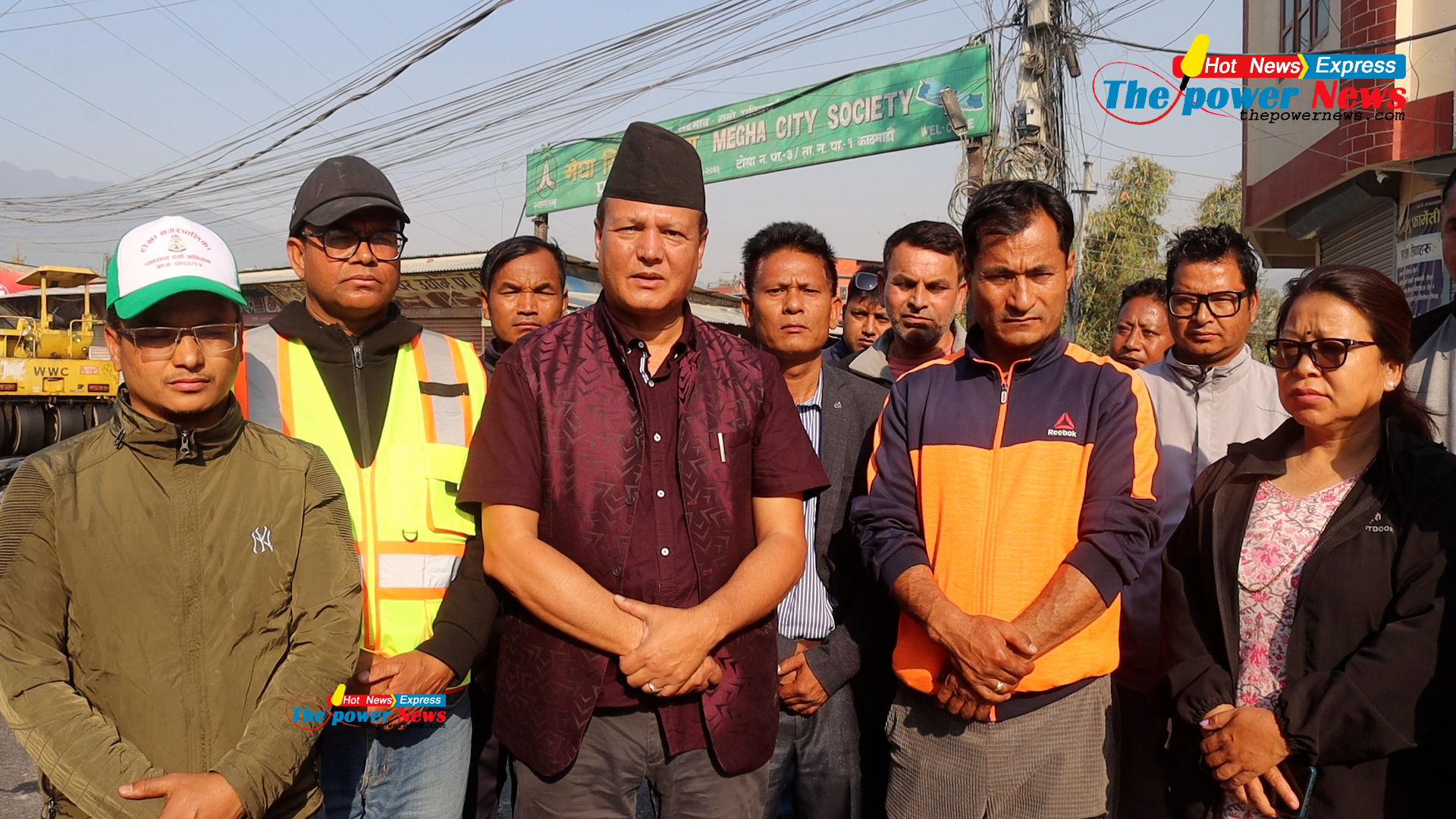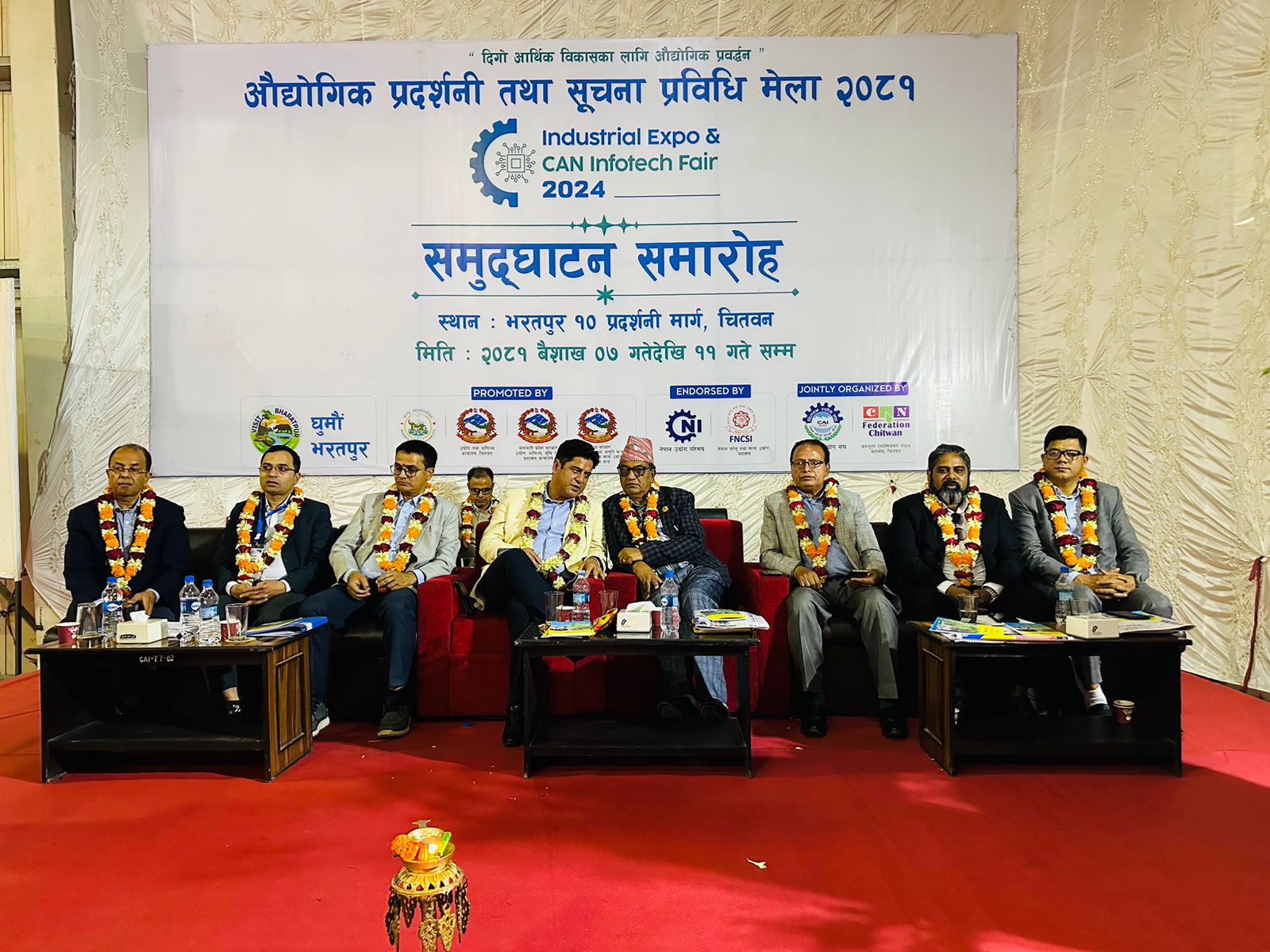DIPESH KHATIWADA, KATHMANDU, JUNE 30 -Ten-year-old Kirti Dahal (name changed) was found wearing an old red Kurta Salwar in

the bank of Bagmati river nearby Pashupati temple.On a regular school day, she was freaking out in an aryaghat (cremation site). I asked her, “Why are you here?” she replied “for fun”. “Don’t you get sacred of dead bodies?” I again asked her, She replied with a smiley face “No”. “Why to be scared?” she raised question, mentioning that they are used to stay there and dead bodies don’t bother them anymore. According to Kirti her mother is a daily wage worker who works at Koteshwor. “Who drops you here?” I asked another question. “I come here myself. Sometimes my mom drops me here,” she said, informing that she can get sweet foods at Ram Mandir, a temple across the river.
“I have no desire to go school. There are around 15 girls like me here. There are some girls inside the forests who are having fun with boys,”
Ishanath Aghori Baba said there are around 300 kids living in the Pashupati area alone. “The number of children will increase during festivals or decrease sometime, but I can say that there are many kids freaking out here,” he said.

Aghori Baba informed that there are around 8 small girls (10-14 years) in the temple premises. “If they don’t get foods anywhere they will come here. It’s sad to inform but these girls are sexually exploited and they sniff dendrite, drink alcohol, smoke marijuana and even they inject drugs with boys inside Bhandar and Pashupati forests, he said.
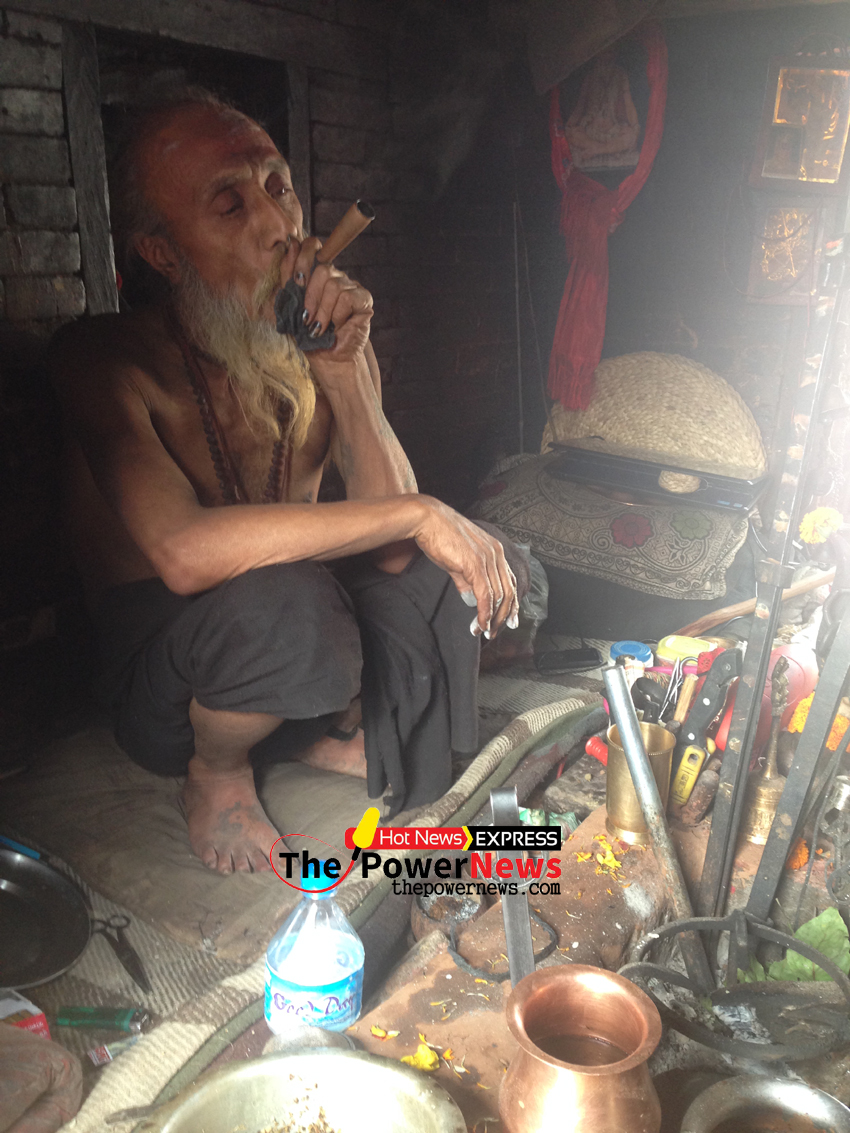
Dipak Magar, 14, from Sindhuli with very old cap, dirty clothes and a cigarette in his mouth said he is earning some money carrying wooden planks and straws up to the ground where cremations of bodies take place,” he said. “We also prepare the wet straws to help in burning the dead body,” he said.
According to the Metropolitan Police Circle Gaushala, around 15 kids were arrested on charge on minor theft in the temple area within the past eight months. They have even stolen shoes, mobile phones and small amount of money from the devotees and travellers in the temple premises. Sub-Inspector Dipak KC said they will hold those kids for few hours and aware them not to repeat such incidents.
“We cannot send them to the child homes or any place as there will be no one to receive them at the last hour. We have been compelled them to send in the streets again,” said KC, referring that those kids will be happy to stay with police if they will be arrested as they can get foods and shelter in police stations.
“Medically the problems related to these types of children can be categorised as conduct disorder and very few may also have intermittent explosive disorder or other problems, says Professor Dr Pushpa Prasad Sharma, a senior consultant psychiatrist. Mostly they have a fighting spirit, drugs history and ability to involve in criminal activities, he said.
Arjun Sherpa, a boy with reddish hair and tattoo in his hand, said he used to earn at least Rs 1, 000 carrying woods and straws in the ghat, however, he cannot earn that much after the electric cremation started in Pashupati.
A 13-year-old boy named Sandip KC took me to Gangamai temple (a temple carved in a shape of meru shri yantra) where worshippers throw coins in the roof of the temple from the Pashupatinath temple premises above the ghat. The worshippers’ belief is that if the coin they throw stays perched on the Gajurs, their wishes will come true.
There were at least five to seven kids waiting for a drop of coin. “We have been collecting coins here for whole day,” said Sandip, adding that the Gangamai pujari will give him Rs 1, 500 for collecting coins on a monthly basis.
Gangamai Pujari Badri told me that he has been helping those kids. “How can I deny them to collect coins as they need money for their survival?” Badri asked. These kids usually entered the Bagmati river in search of gold during night. “One of our friends will stay outside to watch cops and the staffs of Pashupati Area Development Trust. Then we will enter inside river in search of gold just below the cremation ground,” they said.
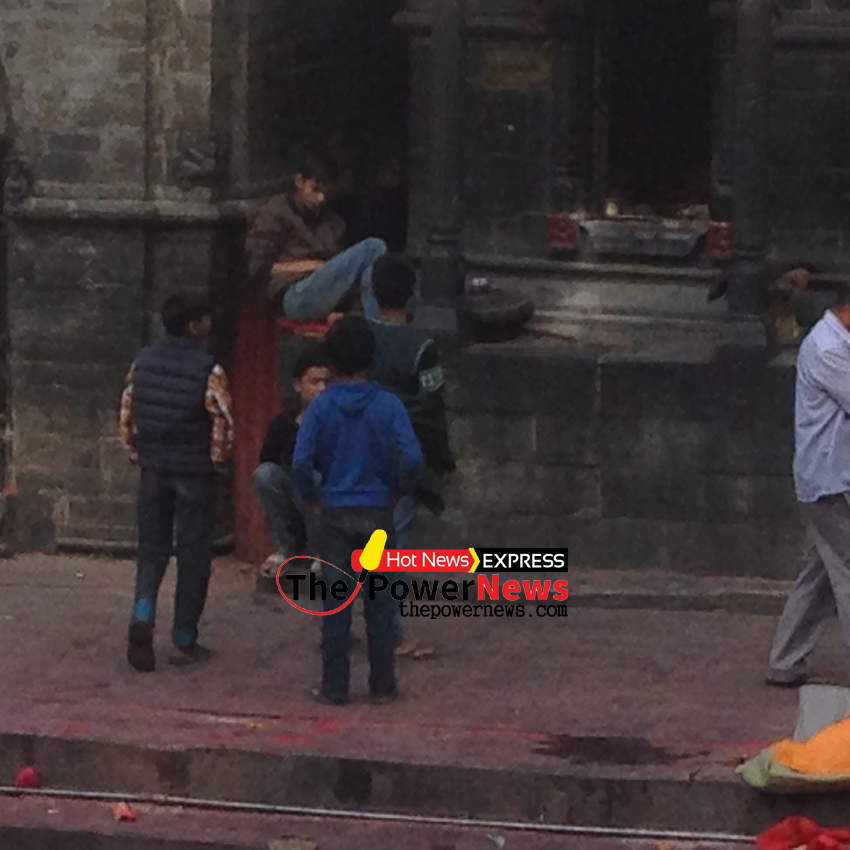
“We have to smoke marijuana, sniff dendrite anyhow and we are happy here,” said Khadka, adding that he has living with his friends anywhere his friend prefer in the temple premises.
“Why don’t you like to stay in child care shelters?” I asked him. He replied they cannot be adjusted in those shelters. The teachers beat us brutally and we don’t like that environment,” he added.
“What will they do even they took us to their children homes?, We have been in several child care homes many times as per their need but at last we will be here or in the street. At least we can earn some money for our survival here,” said 15-year-old Rajesh Tarki of Godavari. Rajesh said he also has been washing dishes in local hotels for survival.
 According to Aghori Baba, some kids are also involved in pick pocketing at temple or any where inside the city. “They catch public vehicles and stole anything they get. They are doing this for their hungry stomach and don’t even know that’s a crime,”
According to Aghori Baba, some kids are also involved in pick pocketing at temple or any where inside the city. “They catch public vehicles and stole anything they get. They are doing this for their hungry stomach and don’t even know that’s a crime,”
“These children lack human dignity and they do not have self respect. They will also have already eroded social norms and values so are found using foul words, sniffing dendrite openly,” said psychiatrist Sharma.
Secretary of Orphan Service Centre in Tilganga, a social organisation working in children welfare, Prazwol Adhikari informed that those kids have a habit of living in free environment. “They have the developed mentality to get rid of restrictive environment,” said Adhikari.
Another Schooling In charge Surya Prakash Shrestha of Chabahil Pashupati Children Shelter (CPCS), a NGO that worked for the betterment of street children informed that they are trying to change the habit of those kids. They cannot be changed at a time because they cannot adopt the environment easily, he said.

